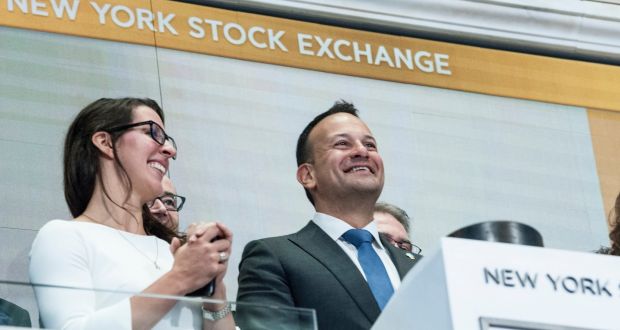By Paul Murphy TD
A year in office as Taoiseach, Leo Varadkar has intensified the neo-liberal direction of the Irish economy and society, while also attempting to cover up the resulting worsening inequality and social crises with spin.
The method by which he won the Fine Gael contest contained all the evidence one needed to predict how he would rule. His publicly funded crackdown on “welfare cheats” was based on entirely false statistics! It was followed by blatant dog-whistles appealing to those who “get up early in the morning”, revealing his agenda for rhetorically and economically attacking working-class people.
Papering over cracks
His first act as Taoiseach was establishing the Strategic Communications Unit. Starting as he meant to go on, €5 million of public money was spent to push Fine Gael’s message. It was only after the controversy of Project Ireland 2040, with ads appearing as news in regional newspapers, that he was forced to abandon it. However, this consistent spin remains a feature of the Varadkar regime. The other key feature is the vicious neo-liberalism the spin is designed to prettify.
The clearest example of these two sides of his rule is seen in relation to housing. Scheme after scheme has been announced to fanfare. However, the building of public housing remains at an historic low, and at the centre of each of these schemes are failed mechanisms to incentivise the private landlords and developers to deliver housing.
The consequence is an unprecedented housing crisis. The government’s response? Varadkar’s chief ally, Eoghan Murphy, Minister for Housing, has simply pressurised Councils to remove people from the housing list, despite the fact that they are still homeless!
Dealing with crises
Prior to his elevation to Taoiseach, much was made of Varadkar’s supposed “straight-talking”. In reality, his commentary on issues like the chronic crises in our health service are only designed to distance himself from responsibility. Meanwhile he continues with a policy of drastic underfunding of the public health service, pushing people towards private insurance.
When faced with political crises, his responses have been a continuation of the traditional ‘circle the wagon’ approach. This was seen when it emerged that Frances Fitzgerald was informed about the Garda Commissioner’s attempt to undermine whistleblower Maurice McCabe at the Tribunal. Varadkar attempted to protect her and defend her position as Tanaiste at all costs. Only the threat of an imminent election forced her resignation.
Storm clouds ahead
It’s possible that Varadkar will see a boost in popularity on the basis of the abortion referendum. Some may be tempted to give him credit for holding the referendum. However, they should be reminded that the Taoiseach, like the majority of TDs, did not undergo some Damascene conversion on abortion. Instead, they were dragged on the ‘journeys’ they spoke about – by a movement of women and young people in particular, protesting and engaging in civil disobedience like the distribution of abortion pills.
This attempt to dress up vicious right-wing capitalism in a socially progressive veneer has become a favoured method for capitalist classes internationally seeking to re-establish political equilibrium. French President Emmanuel Macron has become the symbol of this approach, which Varadkar is partly trying to emulate. However, the major strikes and protests against Macron’s neo-liberal reforms should give Varadkar pause for thought as he enters into his second year as Taoiseach. His remains a fundamentally weak government and working class people, having experienced victories on water charges, marriage equality and the abortion referendum, should feel confident to take him on.












